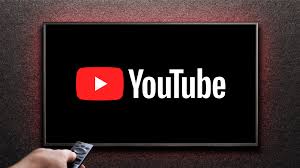A new age-verification system that uses artificial intelligence to distinguish between adults and minors based on the types of videos they have been watching will be tested by YouTube in the United States starting on Wednesday.
Only a small portion of YouTube’s U.S. population will be impacted by the testing at first, but if the system is as successful at estimating viewers’ ages as it is elsewhere in the globe, it will probably spread.
Regardless of the birthdate a user may have provided when registering, the system will only function when viewers are signed into their accounts.
YouTube will implement the standard controls and limitations that the website now employs to stop children from watching videos and participating in other activities judged unsuitable for their age if the system detects that a logged-in viewer is under the age of 18.
Reminders to take a break from the screen, privacy alerts, and limitations on suggested videos are some of the precautions.
Additionally, YouTube, which has been owned by Google for almost 20 years, does not display personalized advertisements to viewers who are younger than 18.
You can fix the system’s mistake if it incorrectly identified a viewer as a minor by presenting YouTube with a selfie, a credit card, or a government-issued identity card.
In a blog post about the age-verification system, James Beser, director of product management for the video service, stated,
“YouTube was one of the first platforms to offer experiences designed specifically for young people, and we’re proud to once again be at the forefront of introducing technology that allows us to deliver safety protections while preserving teen privacy.”
While it is still possible to watch YouTube videos without creating an account, doing so automatically blocks some content without requiring confirmation of age.
Since the U.S. Supreme Court upheld a Texas law in late June that attempted to ban minors from viewing pornography online, political pressure has been mounting on websites to improve their age verification to protect children from unsuitable content.
While some businesses, such as YouTube, have been working harder to verify users’ ages, others have argued that the two major smartphone app stores, which Apple and Google own, should bear the majority of the responsibility. Those two digital giants have resisted this argument.
Age verification may violate First Amendment rights to free speech and personal privacy, according to several digital rights organizations, including the Electronic Frontier Foundation and the Center for Democracy & Technology.

















